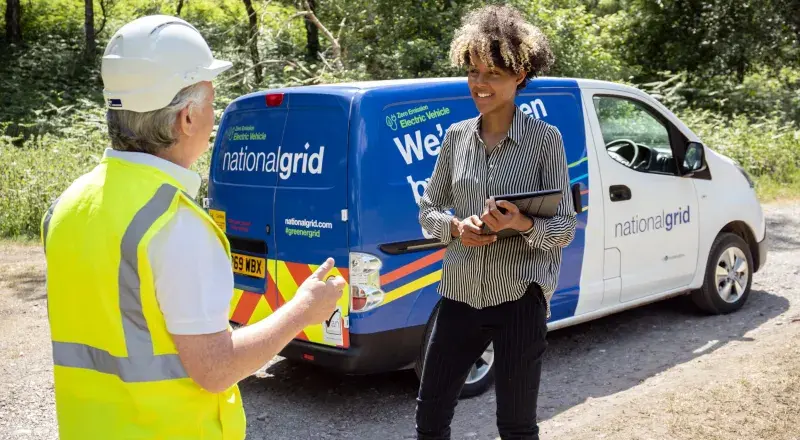SDG 13: Take urgent action to combat climate change and its impacts
SDG Target 13.3: Improve education, awareness raising and human and institutional capacity on climate change mitigation, adaptation, impact reduction and early warning
Progress against our related RBC Commitments:
Our Action on SDG 13
On Reducing Emissions:
- We advocate for policy and regulation that supports climate action.
- We build infrastructure to help enable the connection of clean energy sources to our networks.
- We are integrating electric vehicles into our commercial fleet.
- We are implementing solutions to fix leaking SF6 assets and and exploring new technologies for SF6 free assets and SF6 reuse.
- We invest in Agiito’s Trees4Travel programme to offset our air travel emissions.
- We disclose our climate related risks and opportunities through the Taskforce for Climate Related Financial Disclosures (TCFD), which helps us to understand the potential impacts of climate change and disclose how these risks and opportunities influence strategic decisions.
On Climate Risk and Adaptation:
- We have conducted a Climate Vulnerability Assessment to assess the risks that climate change presents to our business and develop resilience plans.
Challenges we're facing
There are several policy and regulatory dependencies related to the decarbonisation of the energy sector and the reduction of our emissions. Planning and permitting changes are necessary in both the UK and US, and policies that promote energy efficiency and the use of low carbon fuels will also be needed in the US. Without support from policymakers and regulators, it will be challenging to deliver our emissions reductions.
Our scenarios are not linear, reflecting our expectation that progress to net zero by 2050 will not be consistent. We expect natural gas to act as a transition fuel in the US until they choose to switch to electricity. Consequently, it’s possible we won’t see measurable reductions until the end of this decade or the early 2030s. Support will be required from policymakers and regulators to achieve this.
We anticipate an increase in climate hazards, including coastal flooding, in the areas where we operate. These hazards are unpredictable, and their impacts are dependent on the degree of warming that occurs.

